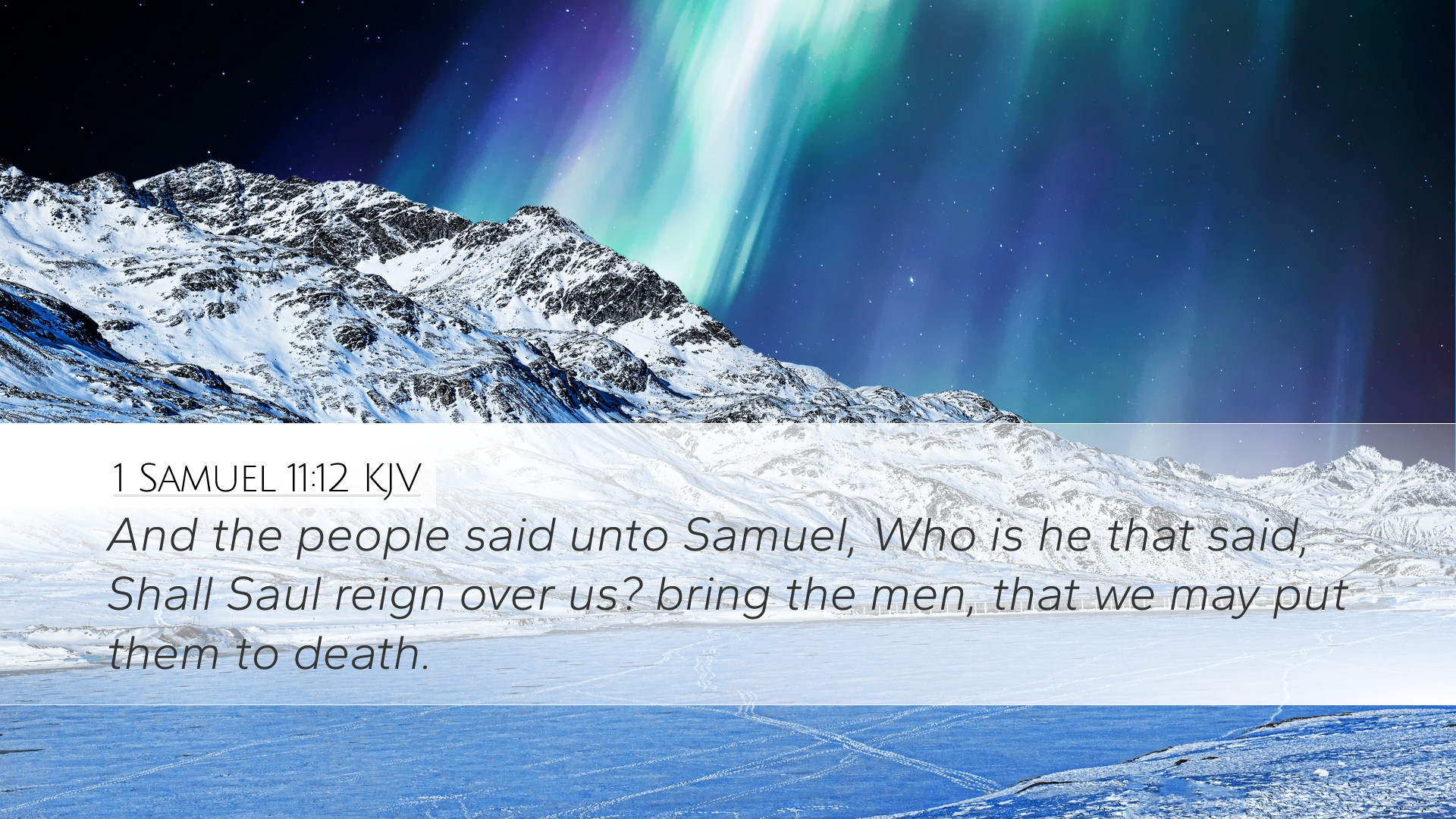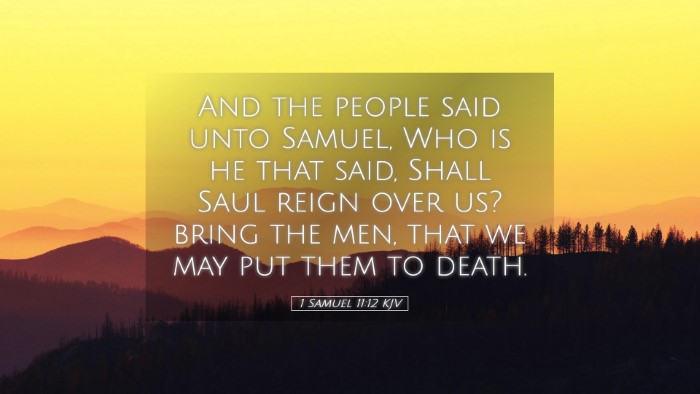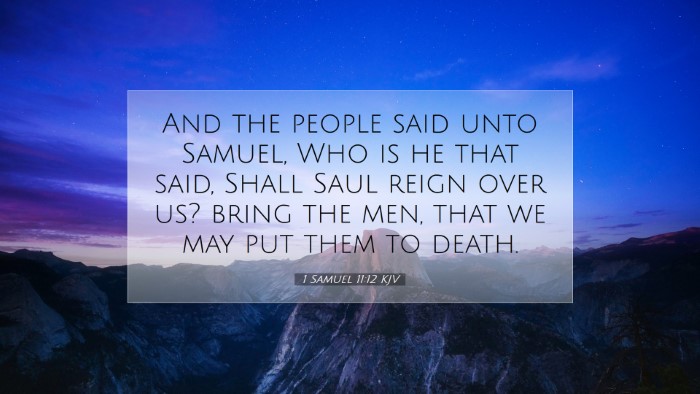Commentary on 1 Samuel 11:12
Verse: "And the people said unto Samuel, Who is he that said, Shall Saul reign over us? bring the men, and we will put them to death."
Introduction
This verse captures a pivotal moment in the narrative of Israel's monarchy. The context is critical: after Saul's deliverance of Jabesh-gilead from the Ammonites, the people express a desire to deal with those who opposed Saul's kingship. Public domain commentaries provide various insights into the theological and historical significance of this moment.
Historical Context
In the preceding chapters, Israel demanded a king, leading to the anointing of Saul by the prophet Samuel. Despite initial reservations, Saul's successful military leadership prompted a rallying of support among the Israelites, shifting their perception of his rule.
- Matthew Henry: Henry emphasizes the importance of divine sovereignty in Israel's choices. He notes that Saul’s victory legitimizes his kingship in the eyes of the people.
- Albert Barnes: Barnes reflects on the social dynamics at play, explaining that the people’s response is an affirmation of Saul as their chosen leader, countering earlier dissent.
- Adam Clarke: Clarke provides insight into the cultural practices of the time, highlighting how public sentiment could sway opinions about leadership based on recent events.
The Nature of Leadership
This passage raises pivotal questions about leadership and the role of divine affirmation in human governance. The Israelites had initially been divided about Saul, illustrating a common tension between popular opinion and prophetic endorsement.
- Matthew Henry: He articulates that this unity, in the face of Saul's victory, indicates a divine endorsement that helps solidify Saul's role as king.
- Albert Barnes: He argues that the people's thirst for retribution against Saul's detractors is indicative of their commitment to a new order and the social stability that Saul represents.
- Adam Clarke: Clarke discusses the nature of confidence among the people, signifying that when a leader demonstrates capability, even former opponents can turn supporters.
Moral and Ethical Considerations
The challenge of moral judgment arises in the people's willingness to consider execution for dissent. This reflects the culture of their time, when rebellion against a king could warrant severe retribution.
- Matthew Henry: He cautions against the drive for vengeance, highlighting that such actions could lead to destructive cycles of violence that undermine the fabric of society.
- Albert Barnes: He points to the interaction between justice and mercy, suggesting that a wise ruler would temper the zeal of the populace with compassion.
- Adam Clarke: He emphasizes the need for leaders to foster a culture of grace and forgiveness, even in the face of opposition.
Theological Implications
This passage offers rich theological themes worth exploring. The sovereignty of God intersecting with human choice is evident in how Saul’s kingship comes to be accepted.
- Matthew Henry: He notes the essential role of divine purpose behind every unfolding event in the scriptures, reminding readers that even flawed leaders can serve God's plan.
- Albert Barnes: Barnes highlights God's providence, suggesting that human leaders are part of a larger divine narrative that cannot be easily understood without faith.
- Adam Clarke: Clarke provides encouragement by reminding believers that in moments of turmoil or dissent, God's hand is still present, guiding the hearts of His people.
Conclusion
1 Samuel 11:12 serves as a profound reflection on issues of governance, loyalty, and the nature of leadership within the framework of divine sovereignty. The insights garnered from these public domain commentaries underscore the timelessness of the lessons from this narrative, urging readers—be they pastors, students, or theologians—to reflect deeply on how faith intersects with the affairs of human governance.


